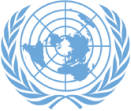Wednesday, 04 October 2023
Mr. Chair,
- I have the honor to deliver this statement on behalf of the Member States of the Association of Southeast Asian Nations (ASEAN). I would like to thank Madame High Representative for her comprehensive report.
- ASEAN aligns itself with the statement made by the distinguished representative of Cuba on behalf of the Group of 77 and China.
Mr. Chair,
- This is another year in which the international community is confronted with frequent, inter-connected, and multidimensional challenges including climate change, geopolitical tension and conflict, uneven recovery from the COVID-19 pandemic, vulnerabilities in global food and energy systems, disruption in supply chains, to volatilities in the financial market.
- The difficult economic conditions have made it more challenging for countries to achieve their development goals. Unfortunately, it is the Least Developed Countries (LDCs), Landlocked Developing Countries (LLDCs) that remain the most vulnerable. The special situations of LDCs and LLDCs coupled with external factors, create a scenario where the divide between these nations and the rest of the world is poised to widen significantly unless their vulnerabilities are addressed comprehensively.
- This hinders their efforts to meet the agreed global development agendas. For this reason, the development of LDCs and LLDCs must be given a top priority as their needs and challenges would hardly be overcome by themselves. Therefore, the support and assistance from the international community are essential for them to attain the objectives of their national development and implement the agreed global development agenda.
Mr. Chair,
- ASEAN, for its part, has made significant progress in regional integration and cooperation since its founding. At the same time, ASEAN members recognize the pressing need to bridge the development gap between the members states, a crucial step toward enhancing the lives and wellbeing of our people. This is an inescapable reality for Southeast Asia, which encompasses not only emerging economies but also those from the LDC and LLDC groups. This recognition is reflected in the ASEAN Charter’s prioritization of goals such as alleviating poverty, narrowing the development gap, and promoting sustainable development in the region.
- To this end, ASEAN has undertaken several initiatives, highlighting the importance of narrowing regional development gap as well as the potential benefits of deeper regional economic integration through a commitment to build a highly integrated, cohesive, innovative, and resilient ASEAN Economic Community to facilitate the seamless movement of goods, services, investment, capital, and skilled labor.
- The ASEAN Framework for Equitable Economic Development guides ASEAN sectoral bodies to ensure that economic integration in ASEAN helps to alleviate poverty and addresses development issues. This includes enhancing efforts to reduce barriers to trade and investment, raising productivity and upgrading infrastructure. ASEAN Free Trade Area (AFTA) reduces tariffs and trade barriers among ASEAN member countries, benefiting LDCs and LLDCs by providing easier access to larger markets beyond ASEAN.
- Furthermore, ASEAN sectoral bodies are also working on strengthening capacity in areas such as agriculture, investment, transport, and trade facilitation. As part of the Master Plan on ASEAN Connectivity, there are ongoing efforts to enhance intra-regional connectivity through developing physical, institutional, and people-to-people linkages benefitting landlocked nations by improving transportation links to international ports.
Mr. Chair,
- ASEAN welcomes the outcome of the SDG Summit as indispensable tools, providing vital momentum and support to developing countries, particularly those in vulnerable situations. They are instrumental in recalibrating our collective efforts and renewing our commitment to the effective implementation of the SDGs. ASEAN remains dedicated to harnessing these outcomes to empower our member states and accelerate our progress towards a sustainable and equitable future for all.
- In addition, ASEAN supports the adoption of the Doha Programme of Action for LDCs and its key deliverable early this year which represents a new generation of renewed and strengthened commitments between the LDCs and their development partners, including the private sector, civil society, and governments at all levels. We also believe that the preparation for the Third UN Conference on LLDCs in 2024 will be crucial to comprehensively review the implementation of the Vienna Programme of Action, and to adopt a new development framework for the next decade.
- ASEAN embraces these mentioned initiatives and urges all stakeholders to join hands in closing development gaps and addressing the special needs and vulnerabilities faced by those countries in special situations.
Mr. Chair,
- Allow me to conclude by reiterating ASEAN's unwavering commitment to collaborating with our esteemed development partners and the United Nations system to promote sustainable development through multilateral cooperation to overcome this challenging time. Thank You.

